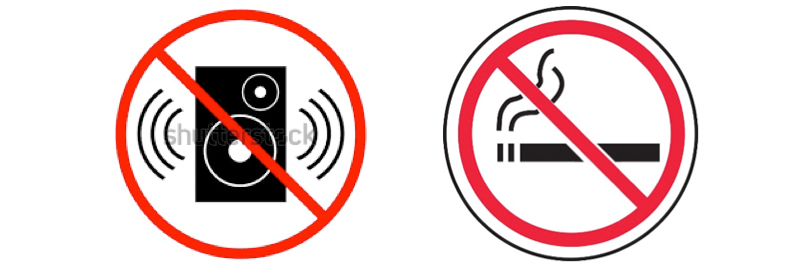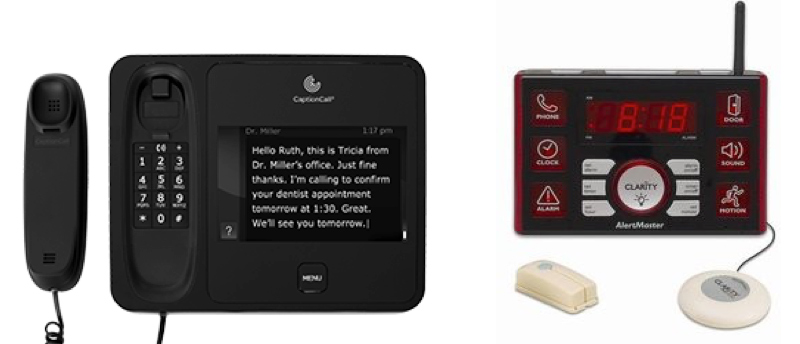If you already have hearing loss, you are not alone. It is estimated that 50% of all people age 75 and older have some form of hearing loss. Hearing loss can cause a lot of problems. But the problem that is becoming more and more important to our patients is losing their independence. In addition to countless office appointments, we make monthly visits to 35 retirement communities. The communities have varying levels of care and we work with patients who are totally independent all the way to those in skilled nursing centers. One of the most common questions we get is “How do I maintain my independence despite my hearing loss?”
50% OF PEOPLE OVER AGE 75 HAVE SOME FORM OF HEARING LOSS
The first step to maintaining your independence is doing all that you can to prevent additional hearing loss. Limiting loud noise exposure goes a long way to ensuring that you preserve the quality hearing that you have left. Even little things like mowing the lawn, driving with the windows down or listening to music at a high volume through ear buds or headphones can permanently damage your hearing after only a few minutes. Along with the other obvious health risks, tobacco use also increases the risk of hearing loss.

Keeping your ears cleaned out is another simple way to stave off the effects of hearing loss. Twenty percent of all hearing loss is conductive hearing loss, meaning the sound is not able to get to the proper part of the ear to be processed. This could be wax, fluid in the ears, or an ear infection. Getting your ears checked regularly by a professional will help make sure that you are getting the most out of your remaining hearing. Finally, check your medications regularly. There are a number of medications on the market today that can be oto-toxic. This means that these medicines can cause permanent and irreversible damage to your hearing. If you start a new medication and notice a change in your hearing, contact your doctor immediately and see if there is an alternative medicine that you can be put on.

The number one cause of accidental death among seniors is falls. One third of all people that experience a fall this year will not return to the same level of care that they lived in before they had their fall. Untreated hearing loss puts patients at a higher fall risk. A recent study determined that for every 10 decibels of untreated loss, the risk of fall increases by 140% percent! Falls can lead to injury, surgery, lengthy rehab stays.
The effects of hearing loss are more than just an inconvenience. Untreated hearing loss can have a major impact on cognitive function and therefore a patient’s level of independence. Untreated hearing loss can lead to social isolation. This lack of stimulation for the brain can lead to auditory deprivation. This auditory deprivation is a direct factor in an increased risk rate of dementia. People with a mild untreated hearing loss at two times more likely to experience dementia. People with a moderate untreated hearing loss are three times more likely to experience dementia. People with a profound untreated hearing loss are five times more likely to experience dementia. These statistics are incredible and prove that untreated hearing loss is more than just an annoyance and posses a serious health risk.

There are a number of assistive listening devices that can be used as a supplement (not substitute) to hearing aids. The first is a caption phone system. Just like closed caption on your television, a caption phone system will display the words being said during a phone conversation on a screen making telephone conversations easier for somebody with hearing loss. Another great device is a hearing-impaired alarm clock. Because a person would not be wearing their hearing aids while they are sleeping, this device has flashing lights and a bed shaker to make sure the user knows the alarm is going off. This device can be linked to the telephone, doorbell or even emergency weather alerts.
These devices are a great addition to hearing aids when trying to maintain your independence with hearing loss.

If you noticed, the term that has been used throughout this article it “untreated hearing loss”. Meaning, if you take the correct steps to treat your hearing loss you can greatly reduce your risk of these negative effects impacting your independence. The best thing you can do if you notice that your hearing loss is negatively impacting your life is to get tested. Having a hearing loss and doing nothing is not a viable solution! There a plenty of solutions for all different levels of loss. Your hearing loss will never be easier (or cheaper) to treat than it is today. And you will never have a higher success rate with hearing aids than you will today, because tomorrow your hearing will be one day worse. Contact our office today and set up your free hearing exam and let one of our specialists put you on a path to better hearing.


